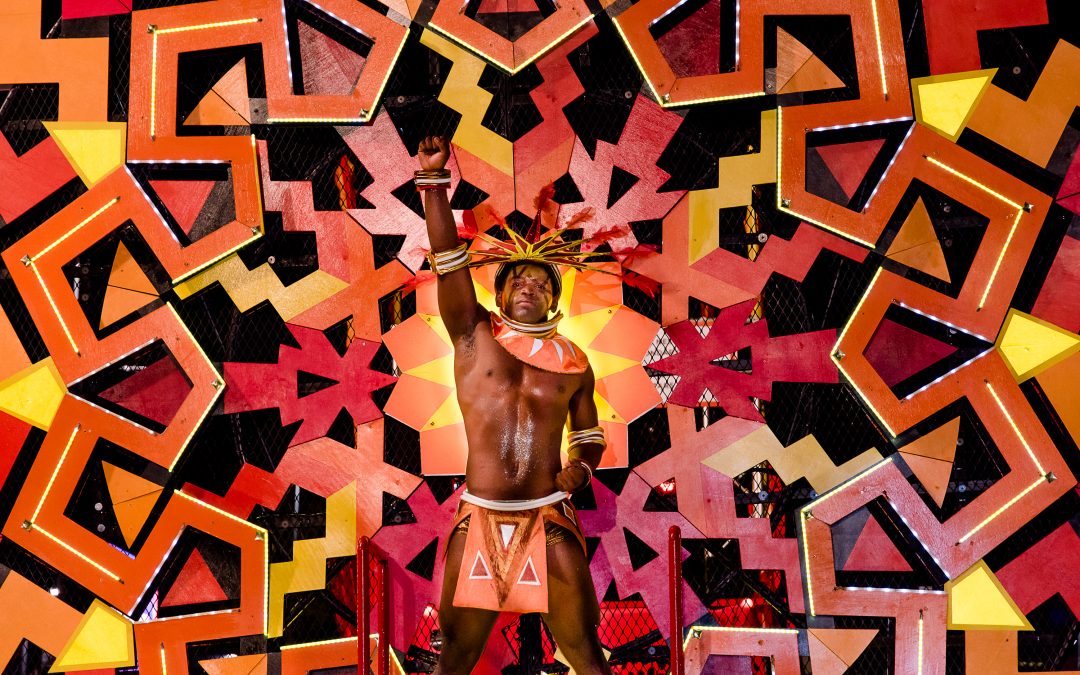The power of thinking differently to imagine a different future on the eve of Freedom Day.
We held the seventh of our monthly online Cultural Creative workshops for 40 community performance groups and individuals this past Saturday
Focused on imagining a future by embracing new ways of doing things, while exploring and sharing creative skills and deepening cultural understanding of each other, the attendees walked away with insight on how to celebrate a future they imagined, just as those in the past imagined the present we are living in now. Attendees were encouraged to use creativity to chart a new course for themselves in South Africa.
“I remember that day, 27th April 1994, so well. There was jubilation, freedom, majority rule,” says Jay Douwes, CEO of Cape Town Carnival. “Twenty-seven years later and South Africans may be free to vote but jobs are scarce and inequality is rife. At the Cape Town Carnival we believe in a future that is joyfully and creatively multicultural. Our collective aims to keep building the dream that our creativity engenders opportunities for individuals and communities.”
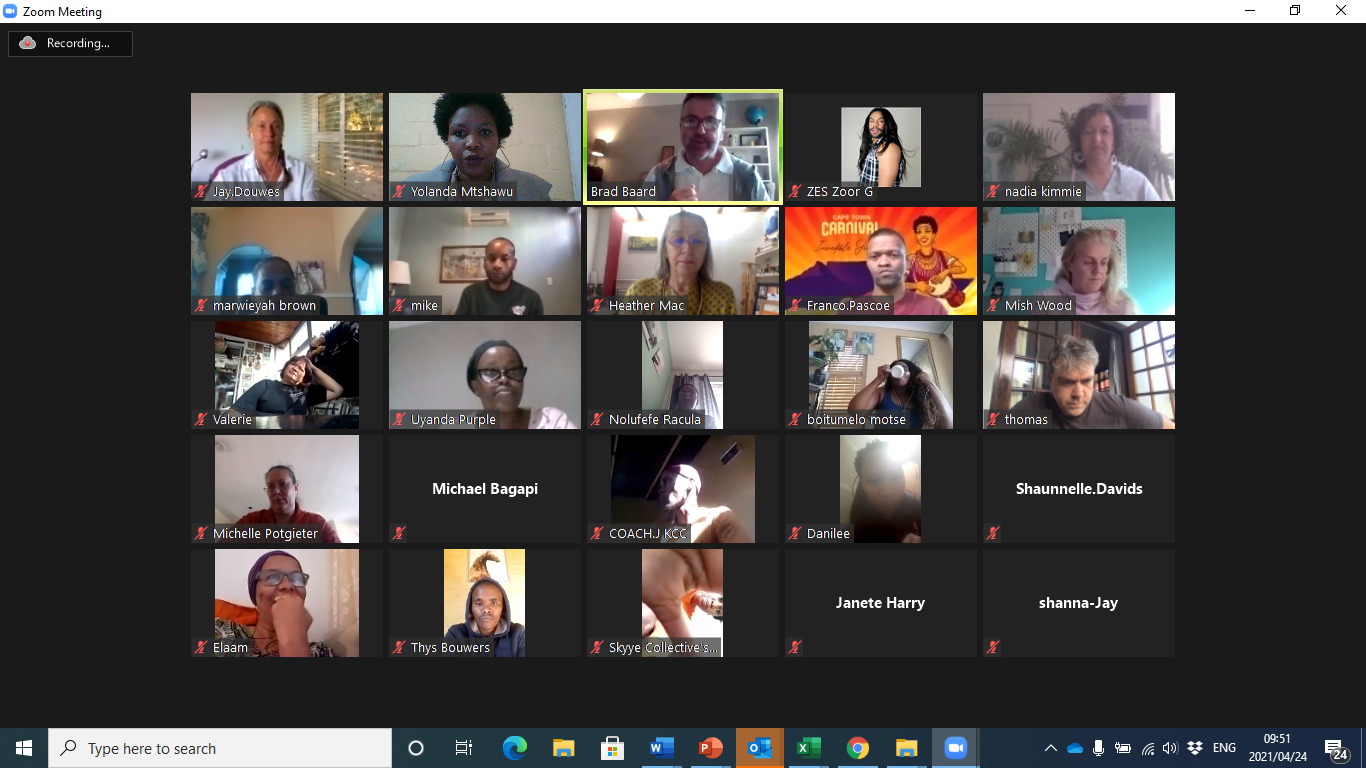
Emphasising the need to stay present and do what one can on a day-to-day basis, in order to change one’s future, Douwes believes that creativity, especially as embodied in Cape Town Carnival programmes and practices, offers abundant opportunity for change as participants engage in knowledge-gathering, skills-sharing, celebration of uniqueness and ultimately setting oneself free. Despite the enormous challenges of pandemic restrictions over the last year, the 50 000 attendee-strong public event has used creative thinking to plot an exciting new set of offerings – online.
Led by singers and dancers from Kuyakhanya Primary School, Zoom attendees were encouraged to toyi-toyi and sing along to Asimbonanga, an anti-apartheid song made famous in the 80s by Johnny Clegg’s Savuka band.
Speakers were invited to reflect on the South African experience in relation to freedom and the future. Small groups went on to share heartfelt thoughts and feelings after hearing powerful testimonies of growing up in a racially segregated society, witnessing parents’ and grandparents’ anguish, and dealing with the trauma and fear of apartheid police raiding households late at night.
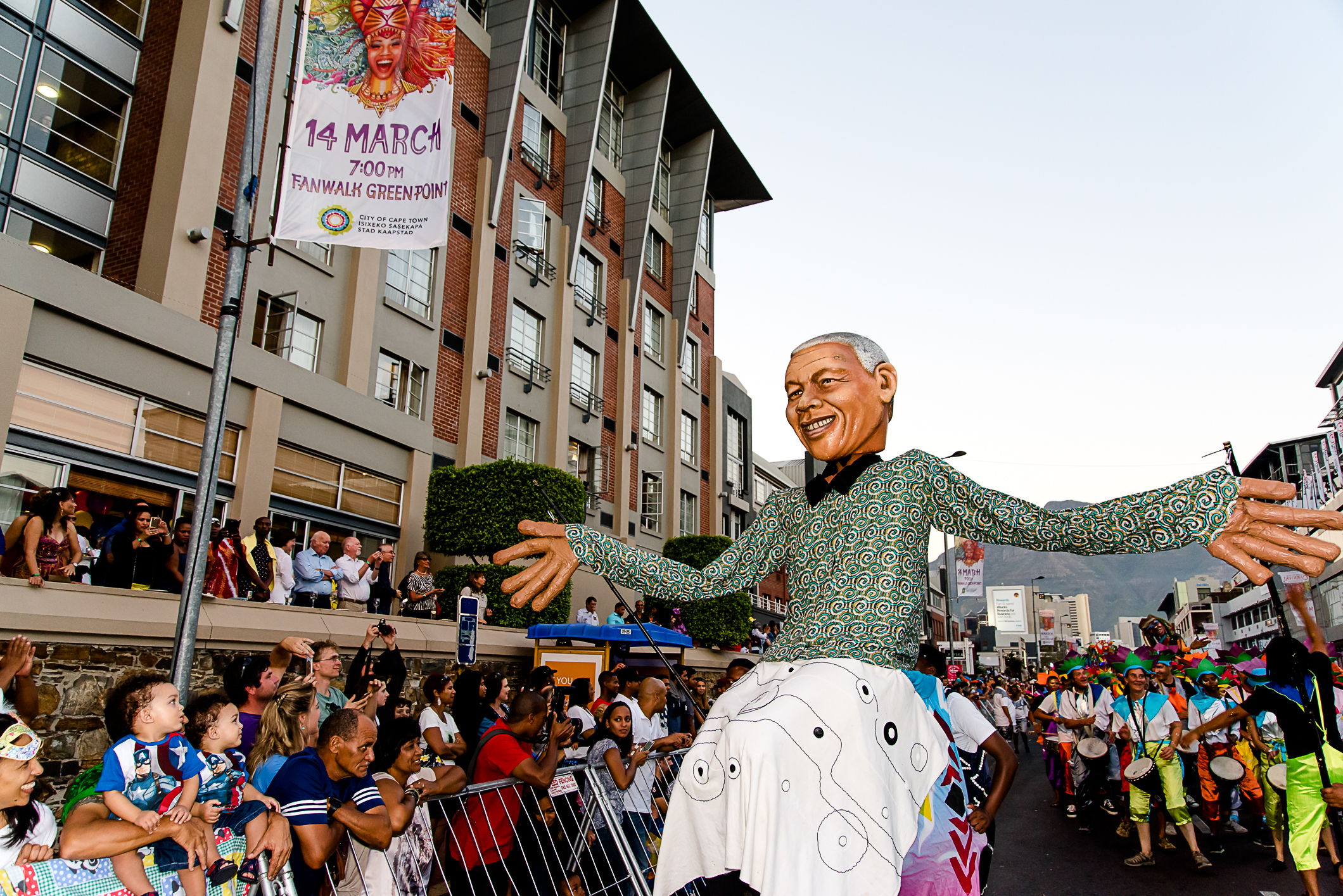
After a breathing and visualisation exercise to acknowledge the strength and resilience of our forefathers and how this can be used to strengthen us into the future, the group was led through a vibrant Zumba movement exercise and were encouraged to literally shake off old thoughts, ideas and habits for a better future.
Looking ahead, several lead performers were asked how they see and feel about themselves as they step into the future. Byron Mc Keith from Stellenbosch had this to say “I’m very excited about my future, I think that with the right mindset and positive outlook on the future, we can achieve more. Covid-19 has allowed a rebirth of our era and this is the time to show the world who we are.” Celest Marinus from Athlone added, “I have courage and kindness to love fearlessly, and courage to grow my faith stronger. Kindness; to continue to spread kindness.”
Feeling a huge sense of optimism, Nonkoliseko Somagu from Lower Crossroads said, “I see myself as an entrepreneur, I see myself as an innovator, I see myself as a young woman that brings change to people’s lives in my community and in my country. A future is what you create now. In the past women were not allowed to make choices for their lives and now as young people we have a freedom to choose what we want for their lives.”
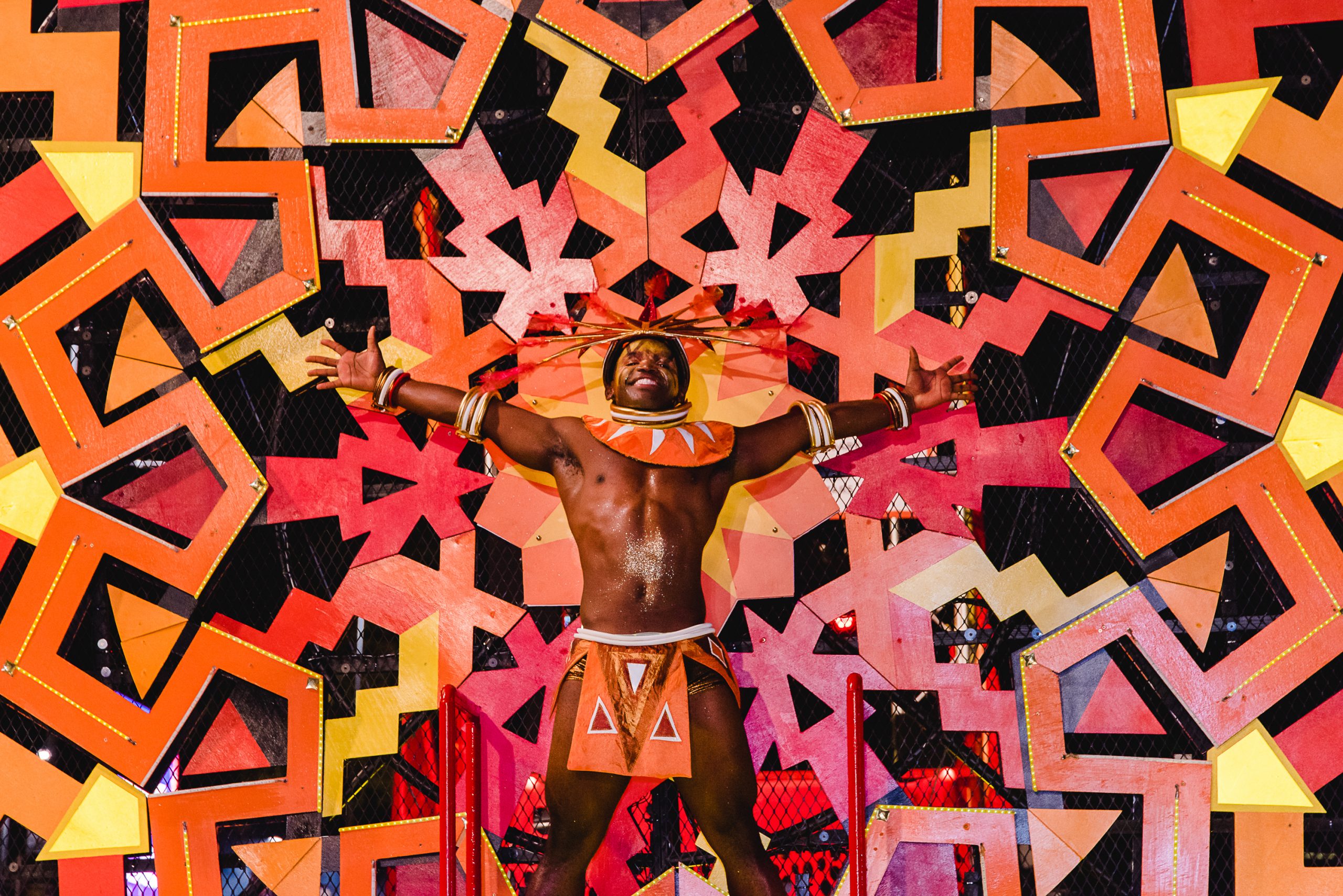
The concept of Afrofuturism was introduced by Mike Tigere Mavura, a trustee of Stellenbosch Triennale and a Change Agent and Lecturer in the Visual Studies Department at Stellenbosch Academy of Design and Photography. Afrofuturism as an idea and movement in design, fashion, literature, music and culture which provides people with a means of “placing” themselves and visualising a limitless future as Africans.
Technology is a key ingredient in Afrofuturism, mirrored in the Carnival’s incredible growth in online activity, particularly its growing success in online Zoom workshops, encouraging attendees to share their creative expression – outside these workshops – actively communicating through social media, video and instant chat services like WhatsApp.
Journeying into the future in a time machine, through a guided visualisation by the Carnival’s creative director, Brad Baard, attendees reflected on the different images and feelings of the future that came up for them.
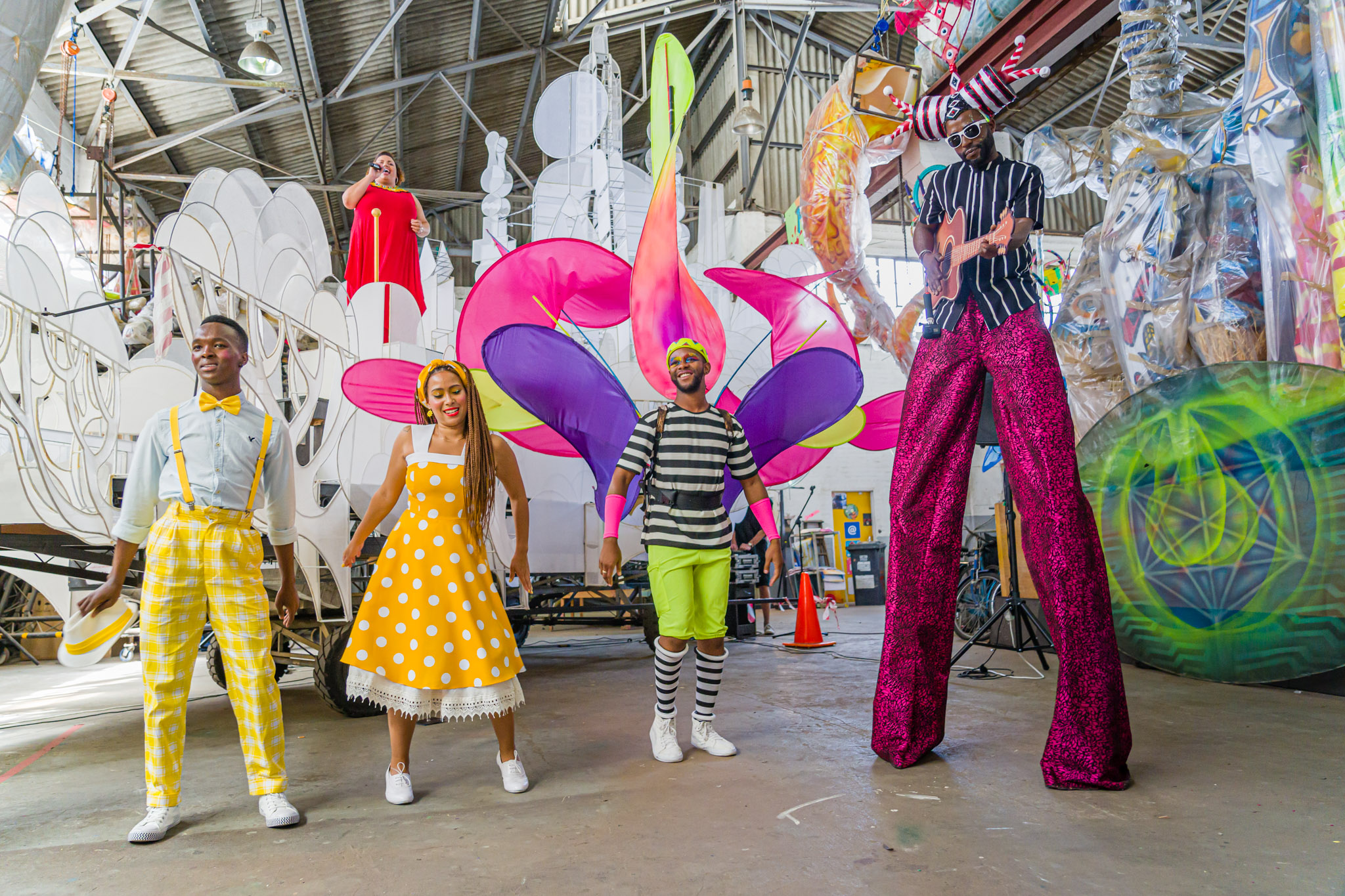
To end the stimulating two-hour creative workshop, Eku McGred’s poem, I’m an African Child, was performed by talented Cape Town Carnival lead performers including an improvised dance performance. Original background music was played by artists Mark Harris and Heather Mac with Warren Wilensky of the Cape Town Carnival family.
Douwes, in closing, empathically believes in Africa’s future. “If we celebrate the African continent and its enormous potential, if we protect and respect the resources, opportunities and people of South Africa, we can build an Afrofuture which we all can be proud of. Each of us in our field of influence makes up the incredible future that we can dream together.”

